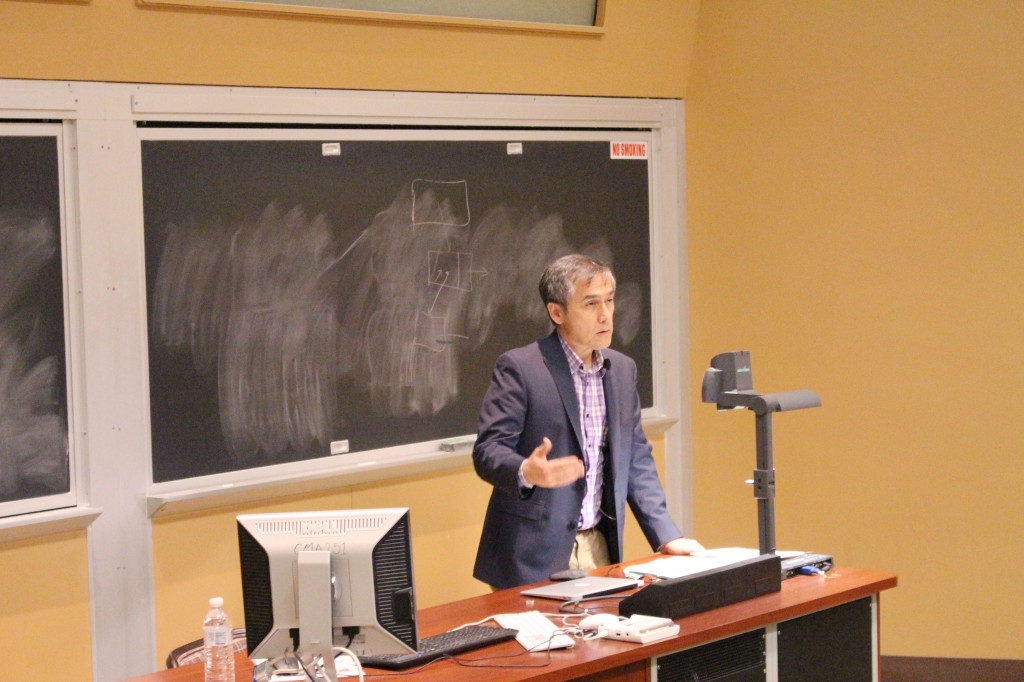
One researcher from Columbia University came to Binghamton University to describe his international experiences and speculate on the future of a country known by many as the “Hermit Kingdom.”
Charles K. Armstrong, professor of Korean studies at Columbia, spoke on Oct. 17 about the changes in North Korea and the possible future for its people in a lecture titled, “Post Socialist North Korea: The rise and fall of Hamhung City.”
During the event, which was held in Lecture Hall 9 and sponsored by the Center for Korean Studies and the Academy of Korean Studies, Armstrong said that North Korea can no longer be considered a socialist country. After World War II and the Korean War, he explained, the changes inside the country are actually leading it toward capitalism.
“Many people predict that it will collapse in the next 20 years, but I think that it will become an authoritarian capitalism similar to Russia,” Armstrong said. “Although it will probably be very corrupt, it will be more open to the rest of the world.”
Armstrong described the city of Hamhung as a case study of the country’s history — it was an industrial city in the early 1900s, but was nearly destroyed after years of war and economic struggle.
“In 1906 Hamhung was a particular focus in the new regime,” Armstrong said. “Many new factories were built around it, and it became the hub of industry. After the American bombing, there were no buildings standing in this city. It wasn’t rehabilitated until the famine in the 1990s, and has been in reverse of urbanization ever since.”
According to Armstrong, though, the history of the North Korean capital, Pyongyang, is in stark contrast to the rest of the country. Armstrong said that Pyongyang was the only city that urbanized after World War II and the Korean War.
“The other cities in North Korea still transport by donkey since all the resources were focused on rehabilitating Pyongyang,” Armstrong said. “Hamhung is no longer the industry hub of the country, and the cities will no longer be socialist.”
After the war in the 1950s, however, the North Korean government did try to rebuild cities and the surrounding countryside. Although it received foreign aid in the 1960s, Armstrong explained that the current government was trying to edit its own history.
“Once when I was on a tour of a German-built monastery in North Korea, the tour guide credited it to Kim Jong-Un,” Armstrong said. “I informed her that the Germans built it and she had no knowledge of that. It’s interesting how North Korea can rewrite its own history for its citizens since they have no contact with outside world.”
John Chaffee, a professor of Chinese history at Binghamton University, said he was excited to hear Armstrong, because events about North Korea are uncommon on campus.
“I had not realized the extent of urbanization that has existed there for the last half century, something that sets North Korea off from most of the developing countries around the world,” Chaffee said. “I was also fascinated by his account of the North Korean version of socialist urban development.”
Sulim Kim, a junior majoring in history, said that Armstrong’s experiences made her believe in a more positive future.
“I want to see North Korea move towards a more open society and hearing about its modernization and urbanization gives me hope for that,” Kim said.


